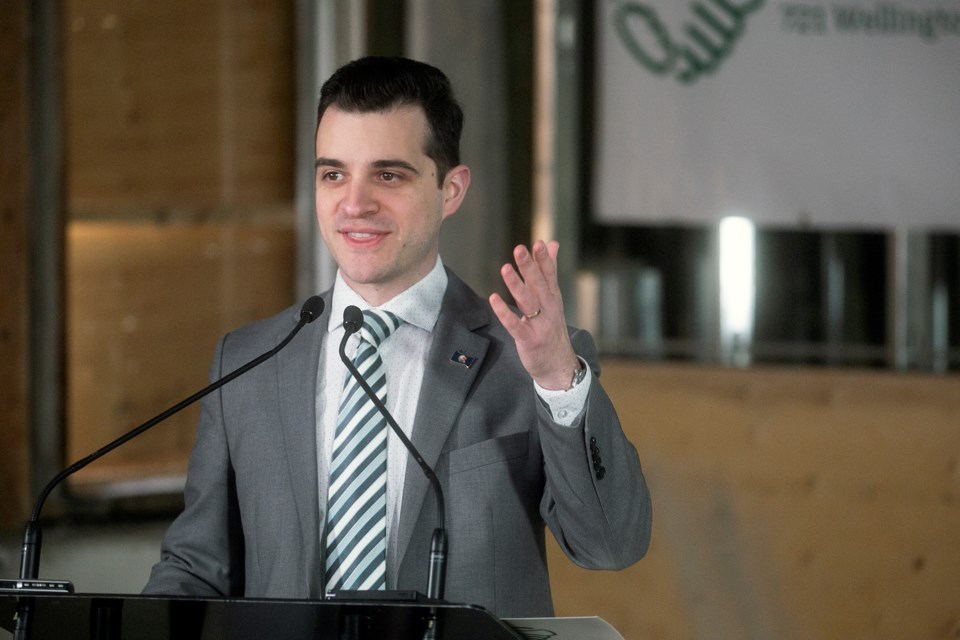While some municipal and regional governments in Ontario have considered declaring a state of emergency when it comes to mental health, homelessness and addiction issues, Sault Ste. Marie has so far not pursued that course of action.
Most recently, the Niagara Region’s regional council declared a state of emergency for homelessness, mental health and opioid addiction during a meeting last month.
The recent motion by Niagara Region council directs the region chair to write to the provincial government asking for action to address the opioid crisis and to increase funding to housing initiatives, as well as increasing funding toward mental health initiatives.
According to a staff report to Niagara Region council, the declaration does not offer any extraordinary authorities that are not already provided for in law and does not impose an obligation on the higher levels of government to provide financial support.
Additionally, a declaration of a state of emergency can be terminated by the premier.
"Therefore if the Region were to declare an emergency related to mental health, homeless and/or addiction with a goal of seeking financial assistance from other levels of government, the province could simply override the declaration," said Adrienne Jugley, Niagara Region's commissioner of Community Services in the report.
What it does allow for is the implementation of the municipality’s emergency plan and protection of property, health, safety and welfare of the inhabitants of the emergency area.
SooToday asked Sault Ste. Marie’s mayor why a similar declaration has not been made in this city, which is also working toward the goal of reducing homelessness and addiction issues.
“I thought it was a good approach from the Niagara Region council but I think we have taken a slightly different approach, but probably with the same end game,” said Mayor Matthew Shoemaker in a recent phone interview.
Although Sault Ste. Marie’s city council has not declared a state of emergency when it comes to those issues, Shoemaker noted they did put a plan forward in April of 2018.
The resolution passed April 23, 2018 directed the mayor and senior staff to support the collective efforts of Algoma Leadership Table, Sault Area Hospitals, Group Health Centre, Algoma Public Health, Sault Ste. Marie Police Services and the Drug Strategy Committee to collectively address the opioid crisis and its consequences.
“We have taken a fairly similar approach, I would say, with slightly different verbiage,” said Shoemaker. “I think the end goal is the same, which is to improve the homelessness and addiction crises that we are all facing.”
“I don’t think there is a single place in all of North America that is not facing these combined three issues — mental health, addictions and homelessness — which all feed off one another and into one another,” he added.
Luke Dufour was one of the members of that previous Sault Ste. Marie city council that unanimously passed the resolution in 2018.
“All of the action items they were trumpeting are all things we have already have done in Sault Ste. Marie, we did them literally three years ago. They are not action items, they are just letters,” said Dufour.
“Action is building a new shelter and adding new transition units, finding money in the budget to figure out new models of supportive housing your municipality can afford,” he added. “When I read the action list from Niagara I honestly feel that Sault Ste. Marie is a bit further ahead than that.”
A declaration of a state of emergency must be made by the head of council, which in Sault Ste. Marie is the mayor. Shoemaker said if the city’s health partners requested that a declaration be made he would consider it.
“I am advocating what our professionals tell me our best course of action is, so if the best course of action is to advocate for the return of the concurrent disorders day treatment program, which I have been told is the current best course of action, that is what I’ll do,” said Shoemaker.
Progress is being made on the request for funding for that program, said Shoemaker, but he acknowledges it is not happening as quickly as he had hoped.
“We are getting positive indications that we are pursuing an avenue that could legitimately be funded, but the rate at which you get an answer on funding is painfully slow,” he said.
A face-to-face meeting with the premier was cancelled during Doug Ford’s most recent visit to the Sault last month,
Shoemaker was scheduled to have a face-to-face meeting with premier Doug Ford during his most recent visit to the city last month. That meeting didn’t happen because the premier left early because of an unfavourable weather forecast, but the two connected by phone earlier this week.
”I reiterated to him in our phone call that our stats for overdoses and deaths are among the worst in the province, and that we need the province’s approval of a supervised consumption site when our application is submitted,” said Shoemaker. “He told me he would flag it with Minister Tibollo to be aware of for when we submit our application.”
Shoemaker expects that application for a supervised consumption site to be completed by summer. It involves asking the province for funding while simultaneously requesting an exemption from the federal government under the Controlled Drugs and Substance Act to allow substances to be used within its walls without penalty.
”We are fortunate that we aren’t starting from home base, because Willow Addiction [Support ]Services did a lot of work on an application previously, and we are using their previous work as the jump-off point for our work,” said Shoemaker. ”I would expect the city won’t be the lead agency, but that it’ll be a partner agency in the health field, though we haven’t determine exactly who can, and is willing, to be that partner quite yet.”
